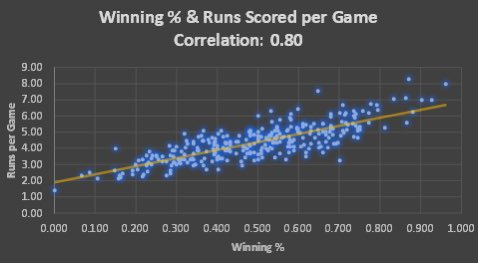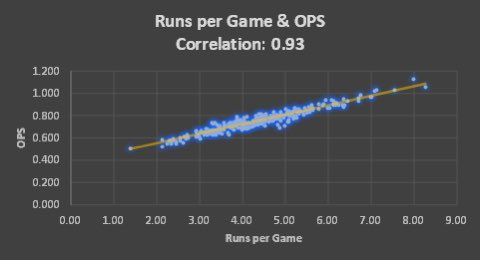Mollyycolllinss Categories For later read
7 days
30 days
All time
Recent
Popular
This is so true! I imagine everyone accumulates a story that serves to make this point, but I'm afraid I can't resist sharing mine... 1/
Once, long ago, my manager came to me on a Friday afternoon: "Are you going to be here on Monday?" 2/
Now, this is the 1990s: to work from home, you needed a modem (!!) -- and at the time, I owned no computer so even that wasn't happening. So I was emphatically going to be there on Monday, if for no other reason that I had nowhere else to work. 3/
"Yes, of course I'm going to be here on Monday."
"Okay, we need to talk Monday."
"Is there something wrong? Can we talk now?"
"Let's talk Monday." 4/
My early-twentysomething self was (obviously?) very anxious, so I immediately went to the office of the senior engineer in the group (and my mentor), Jeff Bonwick to see if he knew of anything that I might have screwed up... 5/
This is very important for people in leadership positions. \u201cHey, have a second?\u201d can send someone with anxiety into a world of panic. Did I mess something up? Am
— Seth Vargo (@sethvargo) January 23, 2021
I getting fired? Is my manager quitting? Is the company going under? https://t.co/AFltjJ0NNe
Once, long ago, my manager came to me on a Friday afternoon: "Are you going to be here on Monday?" 2/
Now, this is the 1990s: to work from home, you needed a modem (!!) -- and at the time, I owned no computer so even that wasn't happening. So I was emphatically going to be there on Monday, if for no other reason that I had nowhere else to work. 3/
"Yes, of course I'm going to be here on Monday."
"Okay, we need to talk Monday."
"Is there something wrong? Can we talk now?"
"Let's talk Monday." 4/
My early-twentysomething self was (obviously?) very anxious, so I immediately went to the office of the senior engineer in the group (and my mentor), Jeff Bonwick to see if he knew of anything that I might have screwed up... 5/
A vitally important thread. Much isnt new, but is so in the air we breathe we forget how RECENT it is & therefore how unaccustomed we r to coping w/it. At the risk of hijacking her great observatns, theyre pivotal to points others have made re: Institutional Evangelicalism...1/12
1. The increased burden of sifting fact from fiction is one that only the economically privileged have the bandwidth to keep up with day-to-day, especially w/the SPEED of news generation we've seen in the last 6-10 years. This contributes to polarization & significantly... 2/12
... disadvantages blue collar America (on the left and the right) in an info economy, and is a massive catalyst for populist sentiments that make it exponentially harder for already-weak institutions to lead or swim against the tide (see Yuval Levin's "A Time to Build"). 3/12
2. I cannot agree more effusively with @sometimesalight's point re: social media & narrative. Social media platforms function as counterfeit institutions (social spaces that form identity via narrative, connection via shared purpose, & virtue via participation). 4/12
Prior to SocMed's ubiquity(approx. 2010), sifting/weighing primarily happened in traditional institutions (esp. churches) where perspectives tempered by wisdom, virtue, & relationship both evaluated & prioritized info. They served as both refuge & filter, solvent & catalyst. 5/12
Popping back on briefly to share some insights on media consumption, spread of conspiracy theories, & epistemelogical divides.
— hannah anderson (@sometimesalight) January 12, 2021
1. The increased burden of sifting fact from fiction is one that only the economically privileged have the bandwidth to keep up with day-to-day, especially w/the SPEED of news generation we've seen in the last 6-10 years. This contributes to polarization & significantly... 2/12
... disadvantages blue collar America (on the left and the right) in an info economy, and is a massive catalyst for populist sentiments that make it exponentially harder for already-weak institutions to lead or swim against the tide (see Yuval Levin's "A Time to Build"). 3/12
2. I cannot agree more effusively with @sometimesalight's point re: social media & narrative. Social media platforms function as counterfeit institutions (social spaces that form identity via narrative, connection via shared purpose, & virtue via participation). 4/12
Prior to SocMed's ubiquity(approx. 2010), sifting/weighing primarily happened in traditional institutions (esp. churches) where perspectives tempered by wisdom, virtue, & relationship both evaluated & prioritized info. They served as both refuge & filter, solvent & catalyst. 5/12
I find this a really interesting point because to me it seems demonstrably true but also symptomatic of why the West Ham board are never going to turn around their reputation without a sea change in their thinking. (Thread, mute as appropriate)
“Win more” is the footballing solution of taking a painkiller for toothache. The pain goes away for a bit but ultimately you still need a painful root canal. And West Ham have needed that for a long time. This current limited success is *despite* the Board, not because of them.
Lest we forget, Moyes did a fine job first time around and was let go so we could pursue a bigger name, waste tens of millions and undo his good work. They’re lucky he was still available and willing to work for them again. They don’t deserve him.
But winning is helpful because a lot of the time, fans struggle to articulate what needs changing. So if the team is doing well it’s easy for the media to say “You’re fourth - what more do these West Ham fans want!” and for fans not to have an easily digestible answer.
But we know that a losing streak will arrive, we’ll suffer some bad luck and some injuries and then it won’t seem so rosy. And at that point we’ll be accused of being fickle, when the reality is that the underlying problems have been present for the entirety of the GSB reign:
A few years ago I was called into a boardroom and asked: \u201cHow do we turn around the headlines for our team?\u201d \u201cWin games,\u201d was my answer. Hugely simplistic and it doesn\u2019t solve deep rooted problems that require greater surgery and strategy from creative brains, but it helps.
— Lee Clayton (@LeeClayton_) January 30, 2021
“Win more” is the footballing solution of taking a painkiller for toothache. The pain goes away for a bit but ultimately you still need a painful root canal. And West Ham have needed that for a long time. This current limited success is *despite* the Board, not because of them.
Lest we forget, Moyes did a fine job first time around and was let go so we could pursue a bigger name, waste tens of millions and undo his good work. They’re lucky he was still available and willing to work for them again. They don’t deserve him.
But winning is helpful because a lot of the time, fans struggle to articulate what needs changing. So if the team is doing well it’s easy for the media to say “You’re fourth - what more do these West Ham fans want!” and for fans not to have an easily digestible answer.
But we know that a losing streak will arrive, we’ll suffer some bad luck and some injuries and then it won’t seem so rosy. And at that point we’ll be accused of being fickle, when the reality is that the underlying problems have been present for the entirety of the GSB reign:























